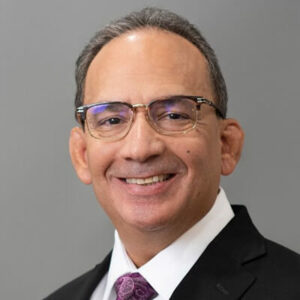When you are operating a business, there is always a chance of your enterprise being served with a lawsuit. Finding out your business has been sued can be stressful and scary, and it’s important to understand the process. Part of the lawsuit may involve you or others from your organization being deposed. If you are unfamiliar with depositions, you need to know: What happens during a business lawsuit deposition?
Litigation can be a lengthy and intense process. Therefore, it’s vital that you work with an experienced business law attorney throughout your lawsuit.
What Happens During a Florida Business Lawsuit?
Florida business lawsuits involve three main phases: Service, Discovery, and Trial. Once the lawsuit has been served, each side will have an opportunity to request information from one another through the discovery process. After discovery is completed, the parties may decide to settle or go to trial. While that may sound relatively simple, litigation can involve numerous complex processes.
Your lawsuit may involve:
- Preliminary hearings
- Written discovery
- Motion Hearings
- Written Interrogatories
- Production
- Alternative Dispute Resolution
- Trial
- Appeal
Understanding Business Litigation Discovery
When a party files a Florida business lawsuit, both sides have the right to serve each other discovery to get the information they need for their case. Depositions are part of that process. Discovery can also involve parties requesting numerous documents and asking for admissions, and other information.
What is a Deposition?
When a witness is deposed, they will attend a meeting with the opposing side’s attorney and their attorney, where they will be placed under oath and asked questions. The questioning will take place with a court reporter recording the testimony to create a written transcript.
What is the Purpose of a Deposition?
During a business litigation deposition, the party asking the questions is trying to obtain information and testimony from a potential witness that may be used later in the case. Deposition testimony can be used as evidence at trial, and the deponent will be bound by the commentary and responses given during a deposition.
How Does a Deposition Work?
To schedule a deposition, the deposing party will serve the person they intend to depose a specific number of days before the end of the discovery period. The notice will tell the deponent where and when to appear and may include instructions to bring specific documents with them to the deposition. The deposition may be in person or conducted via video or telephone conferencing and may take multiple hours to complete. There can also be depositions on written questions which involve the deponent answering prepared questions in writing.
The Importance of Deposition Testimony
The questions asked during a deposition are often the same or similar to the ones that would be asked if the case went to trial. Therefore, a lot can be riding on a deponent’s answers. If a deponent provides information that is harmful to the other party’s case, their attorney can take that into consideration when developing their trial strategy or settlement terms. Likewise, if the deponent provides details that help the deposing party, this may factor into the decision to go to trial.
Business litigation depositions are an important part of the discovery process and can significantly impact the lawsuit. If you or your business has been sued, you will want to work with an experienced Florida business attorney during discovery, depositions, and all other parts of your case.
Contact an Experienced Florida Business Attorney
Attorney Richard Sierra at the Florida Small Business Center assists clients like you with commercial leasing, business, and litigation matters. As always, Our Goal Is to Help You Succeed™. For an appointment, you may call us at 1-866-842-5202 or use the contact form on our website. We represent clients throughout the State of Florida, including Coral Springs, Coconut Creek, Boca Raton, Delray Beach, Pompano Beach, Sunrise, Fort Lauderdale, Miami, West Palm Beach, Jupiter, Deerfield Beach, Stuart, Port St. Lucie, Orlando, Naples, Fort Myers, Sarasota, Tampa, and surrounding communities.
